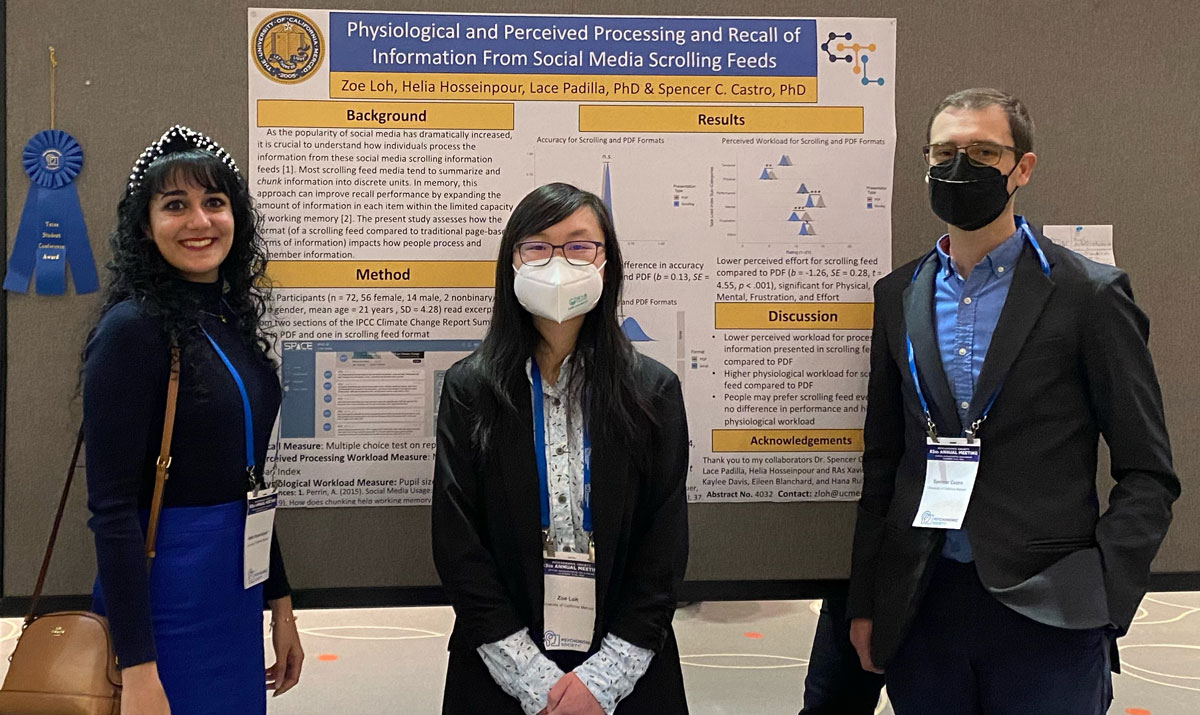CAR Tech Lab seeks to redefine technological interactions.
The CAR TECH lab's research program encompasses the development of measurement tools and computational methods to reduce risk, errors, and even fatalities associated with systems containing technological distractions. We bridge computational modeling with industry-facing applications to determine the impacts of incorporating technology into our everyday existence. Four areas of research currently being addressed are psychological measurement tools for in-vehicle interactions, computational modeling of decision-making applied to cognitive workload measurement, industry-facing human-centered interaction development and evaluation, and the neurological underpinnings of our interactions with natural environments and technology.
In-Vehicle Interactions
Modeling Cognitive Workload - Distraction and Performance
Human-Centered Interaction Development and Evaluation
Natural Environment Interactions
